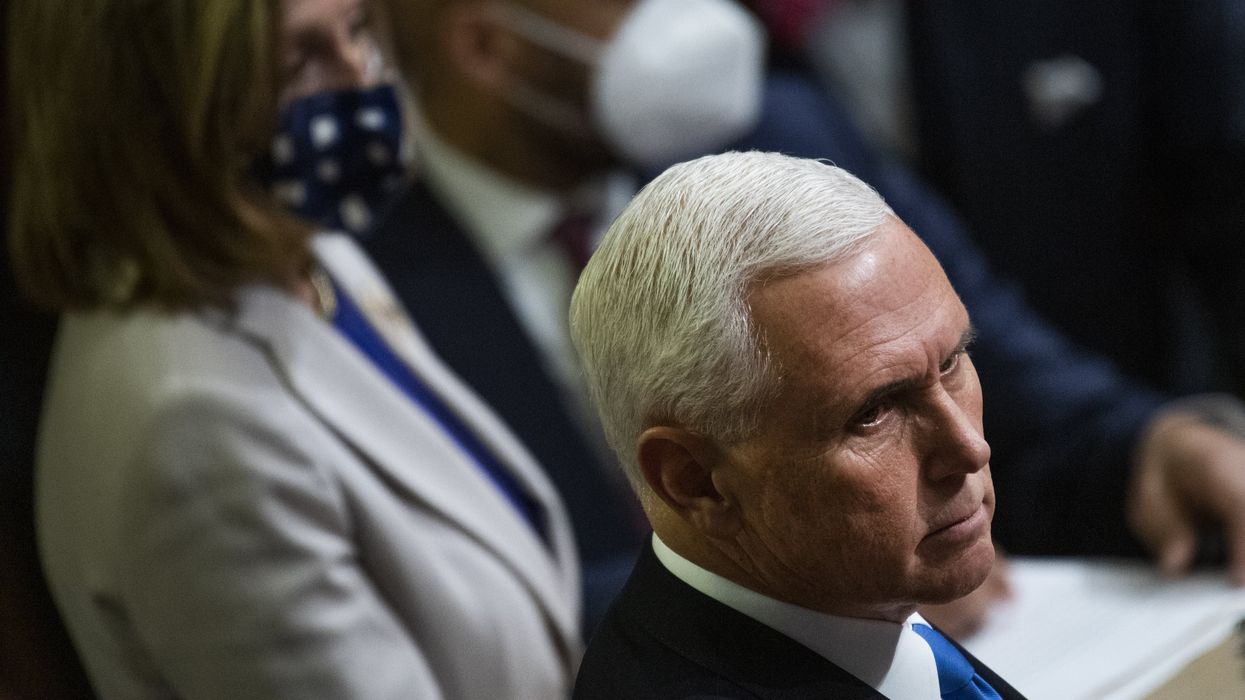Johnson is the executive director of the Election Reformers Network, a national nonpartisan organization advancing common-sense reforms to protect elections from polarization. Nevins is co-publisher of The Fulcrum and co-founder and board chairman of the Bridge Alliance Education Fund.
All of us remember when Vice President Mike Pence declared Joe Biden the winner of the presidential election at the end of a violent day at the Capitol on Jan. 6, 2021. Those were trying times for our country as MAGA loyalists circulated baseless claims of fraud and Donald Trump pressured his vice president to prevent Biden’s win by not counting electoral votes from some states.
In response to these unprecedented threats, and in a rare act of bipartisanship, Congress passed the Electoral Count Reform Act in 2022, updating the Electoral Count Act of 1887. ECRA provides critical amendments to the existing law that eliminate much of the ambiguity that created the pretext for Trump’s attempted sabotage in 2020.
ECRA amended the powers of the key actors in the presidential election process.
State legislatures and slates of electors
- ECRA prohibits legislatures from changing laws governing the selection of presidential electors after Election Day.
- ECRA also repeals the “failed election” provision of the prior law, which could have allowed legislatures to reject the popular vote and appoint a slate of electors themselves if they thought the election was flawed.
Taken together these provisions make clear legislatures have no role in presidential elections once Election Day has come. This is important because legislatures reflect the interest of the majority party in that state, making them unlikely to be honest brokers in a disputed election. Before Election Day, legislatures decide how the state will select its electors (whether “winner take all” state-wide or by congressional district, for example), but they cannot intervene in any way after Election Day.
The vice president and the counting of the electoral votes
- ECRA clarifies that the vice president may only hold “ministerial duties” in the electoral vote-counting process. The VP has “no power to solely determine, accept, or otherwise adjudicate or resolve disputes over the proper list of electors, the validity of electors, or the votes of electors.”
Most scholars argue that even under the prior law the vice president’s role was only ministerial and non-discretionary, but Trump and his lawyers found enough ambiguity to demand that Pence reject electoral votes and unilaterally change the outcome. That dangerous idea is now unambiguously off the table.
Congress and congressional objections to electoral votes
- ECRA strictly limits the grounds on which members of Congress can object to electoral votes to narrow procedural problems that are very unlikely to occur, such as an electoral vote for a president who is under 35 (which is prohibited by the Constitution).
- This means Congress cannot object to a state’s certified electoral votes because of how the presidential election was conducted in the state.
- The law requires one-fifth of each chamber of Congress to support a valid objection to electoral votes in order for a vote to be held on that objection and requires a majority vote in both chambers to sustain such an objection.
Taking these provisions together provides for only a very narrow role for Congress, so narrow that Congress should not be said to “certify” the presidential election. They observe the count, and that’s all, except for the very unlikely case of electoral votes that are flawed on narrow technical grounds.
Courts and disputed elections
- ECRA provides for a district court of three judges to hear cases brought by a candidate regarding the issuance of the certification of results in any state
- ECRA states that if there is a final decision by a state or federal court that changes the election outcome in a state after that state has certified its results but before the meeting of the electors, then that result “supersedes” the previously certified results.
These elements of the law make clear that courts of law have the primary role in resolving a disputed presidential election. This is entirely appropriate, and consistent with international democratic norms. Courts are the institution best equipped to hear evidence and render judgment and are therefore most likely to resolve a disputed election fairly.
Taken together, all of these changes make major improvements to shore up the presidential election process against any further rogue challenges. The Electoral College structure and voting process did hold up in 2020 — with ECRA it has been significantly reinforced.



















